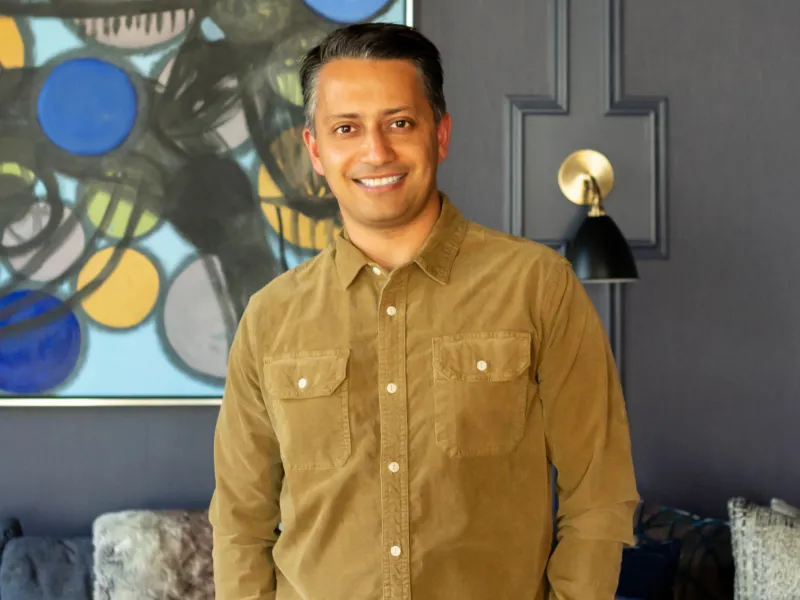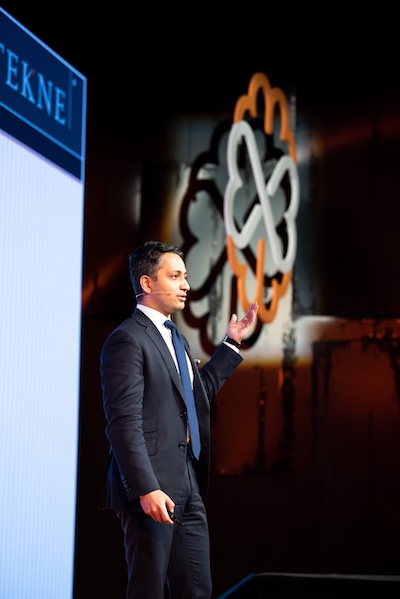
Fourteen years ago, Beeneet Kothari was looking for promising technology stocks when his attention turned to a Chinese e-commerce company that had not yet gone public: JD.com. Buying goods over the internet was still in its infancy at the time, but JD.com held a unique appeal for the former Duquesne Capital partner. With an army of delivery boys on bicycles in China’s congested cities, the company promised to deliver goods to its customers overnight.
Both Kothari and Duquesne founder Stanley Druckenmiller, who had just shuttered his hedge fund, were struck by the concept and invested their personal money in the privately held company, holding on for the initial public offering in May 2014. By that time, Kothari had started a fund of his own: Tekne Capital, which got a piece of the IPO. JD.com’s unique customer-friendly strategy was soon copied by Amazon, whose quick delivery times have propelled its growth in a way few would’ve imagined a decade ago.
JD.com was one of a number of Chinese IPOs that Tekne bought. Another was Alibaba Group, which went public in October 2014. Chinese stocks, however, were controversial and constantly under attack from U.S. short-sellers who often said their poor governance and accounting practices made them “uninvestable.” The stocks were volatile, with the Chinese market peaking in 2015 before a speculative bubble burst. And when Alibaba founder Jack Ma gave a speech in 2020 that criticized China’s regulators and state-owned banks, the government cracked down. Ma disappeared from sight, and the market for publicly traded Chinese companies deflated.
But even as foreigners shied away, China remained bent on developing its industrial and technological capabilities for this century and beyond. It has roared ahead of the U.S. in electric cars, solar power, and high-speed rail, not to mention nuclear power and military prowess in certain areas. “China prioritizes building colossal public works such as bridges, dams, and airports, as well as products like toys and iPhones,” says Kothari.
Last year, China’s economy started coming back from its long Covid winter, and its stock market is now soaring. The Shanghai Composite hit a decade-long high in August and is up more than 20 percent over the past year. Meanwhile, Hong Kong’s Hang Seng Index has gained about 30 percent this year alone — far outpacing the U.S. stock markets, which have been stymied by the very Trump tariffs that seem to be having only a negligible impact on China. In recent months, Hong Kong–listed companies like Alibaba have been raising money in the capital markets.
Didi Global, the so-called Uber of China, whose U.S.-listed shares are so beaten down that they trade in the pink sheets, is expected to relist on a major exchange — evidenced by the fact that Goldman Sachs and J.P. Morgan recently initiated coverage of the stock.
“The capital markets in China are back, but they’re still cheap and they’re still under-owned globally,” says Kothari. “And I think this is all going to change in a big, big way.”
Kothari’s main thesis is that Chinese stocks are simply undervalued compared to high-priced U.S. tech stocks, at a time when China is poised to take off. Take Didi, which Tekne owns. When both Didi and Uber were private, their valuations were almost the same, Kothari says, noting that Didi suffered during the three-year lockdown in China — when no one was using a ride-hailing company. The stock fell 85 percent from its IPO levels and is “in purgatory,” he says.
But as China recovers, the stock’s discount to what Uber trades at is “too high,” Kothari argues. Over the past year, it has started to catch up, with shares advancing about 70 percent compared with Uber’s gain of about 30 percent.

Not surprisingly, Tekne is having a bang-up year with a concentrated portfolio of ten stocks, four of them Chinese. The hedge fund has surged by 52 percent this year through September and was up 22 percent in 2024, according to an investor.
And many Chinese tech and AI companies are just getting started. “I look at our portfolio in China today, and not only were the majority of our companies, if not all of them, not even public when I started Tekne, I think many of them hadn’t really even been founded,” Kothari says.
Tekne’s international focus seems a natural fit. He was born in Jodhpur, India, and his family moved to New York’s Long Island when he was in fifth grade. He says the family emigrated so he could get an American education, but ironically, the early-grade education he had received in India put him three years ahead of his American peers in math when he arrived.
“The way you learn in India is a lot of rote memorization,” Kothari explains. But he believes the U.S. system offers “a lot more creativity, a lot more freedom in your thinking.”
Kothari originally thought he would become an engineer like his father. But the son ended up at the University of Pennsylvania after turning down MIT, to his father’s dismay. Kothari says he chose Penn because it had a joint degree between Wharton, its business school, and the engineering school.
“I thought I could still have one foot in the door on my engineering side but maybe have one foot out the door,” he says, as by then he also had an interest in finance. Kothari ended up finishing his undergraduate degree in three years and getting a master’s in engineering and biotechnology in his fourth year.
Like most Penn graduates at that time, he gravitated to investment banking, landing a position at Morgan Stanley. “I followed the herd,” he says.
Kothari soon got a call from a headhunter who put him on the hedge fund path. He had made it clear to her that he wanted to focus on technology. “That was true when I was ten years old. It was true at 20 and at 40 now. It’s still true,” he says.
But when the recruiter called to say that Druckenmiller was looking for a technology analyst at Duquesne Capital, he had little reaction. “This is as embarrassing today as it has ever been over the last 20 years,” he says, acknowledging that he had never heard of the famous hedge fund manager. “My dad’s an engineer. He doesn’t own any stocks. I’d never owned a stock in my life.”
The headhunter, who had expected the young banker to be ecstatic, offered him some advice. “‘Look, I’m going to hang up the phone. We’re going to try this again. And in the meantime, you’re going to go over to Google and research this and have the appropriate reaction,’” he says she told him.
Kothari did as she suggested — and he got the job. Although the technology group was a small part of Duquesne’s business, it was investing in the sector at an important time. Google had just gone public — the first major tech company to do so since the dot-com bust. Kothari says his first trades at Duquesne were Microsoft and Apple, whose iPhone launch he was anticipating. He stood in line waiting for the first one to come on to the market.
“We owned half a billion dollars of Apple because of me going into that phone launch,” he says. By 2008, he was named a portfolio manager, the youngest in the history of the hedge fund. He also became a partner. After Druckenmiller returned outside capital two years later, he chose a few of the top portfolio managers to start a successor fund, PointState Capital. Kothari was one of the founding partners, staying for a year and a half before launching Tekne in 2012.
Former colleagues weren’t surprised when he went out on his own. “Of all the people I worked with at Duquesne and PointState, he would definitely be toward the top of the list of people who I think had that sort of entrepreneurial bent,” says one who now works at another hedge fund and remains friends with Kothari. He says he was impressed with Kothari from his first interview at Duquesne. He recalls that Kothari had a “clear vision” of how he wanted to differentiate himself from the competition at a time when starting a hedge fund has become “extraordinarily difficult.”
Kothari says Tekne’s renewed focus on China is a result of following the advice of Druckenmiller, from whom he says he learned “a million things.” But, he adds, “the one that I’ll probably never forget even 20 years from now or 40 years from now is when you see these opportunities . . . you've got to swing.”
China, he says, was one of those “once-in-a-blue-moon opportunities.”
In the first half of 2024, Tekne tripled its exposure to Chinese equities. “At the time, valuations [for Chinese companies] were more than 2 standard deviations below the averages and equity risk premiums were at the same levels as during the great financial crisis,” says Hussein Sacoor, a Tekne partner who focuses on China.
But Tekne was seeing some promising metrics, including expectations that capital distributions would be happening at “a very accelerated and large pace,” says Sacoor. “The second thing that we saw was that earnings were beginning to pivot. And then the third piece that we saw was what we call the policy pivot. We saw an almost unlimited commitment of liquidity to the Chinese market by the [People’s Bank of China] and the [Chinese Communist Party].” He adds, “The bull market in Chinese equities went from being a policy collateral to becoming the policy in China.”
On the micro level, Tekne took a big swing at a Chinese company called GDS, an Asian carrier-neutral data center business well positioned for the coming AI boom in China. Tekne is now a top-five shareholder of the company, and GDS is its biggest position.
“We call it the landlord of China AI,” says Sacoor. “This is a company that’s trading at one third of the valuation of its lower-quality peers, and it has an international subsidiary, which is its data center operations in Southeast Asia. That piece alone today is worth two to three times the equity value of the entire company.”
Kothari elaborates on Tekne’s overarching thesis. “The big trade in America is AI. ChatGPT was launched in November of ’22, so this is year three,” he says. The equivalent trade in China is DeepSeek, which took off just this year. “So the crazy thing is not only are we earlier, but you know what the next three years in China are going to look like? It’s going to look just like 2022 to 2025 in America,” he predicts. “There’s going to be a massive build-out, massive consumer adoption, and massive stock market appreciation.”
Over the past three decades, the U.S. was clearly the global leader in technology leadership, Kothari acknowledges, but he believes a shift is occurring. “I think today, for the first time, it’s a toss-up” with China, he says. And he argues that’s because of the big role energy plays in AI.
That’s where China’s emphasis on building out its infrastructure could pay off. “China has 2.5 times the power of America today,” explains Kothari. “Power production in the U.S. has been more or less flatlined for the last 20 or 30 years. In China, it looks like a straight line up.”
The investment pool of global technology companies outside the U.S. is worth $10 trillion today, according to Sacoor. From an allocation standpoint, it’s also severely underinvested. “So you put those things together, that’s supply-demand imbalance. On the one hand, you’re a manager that’s tackling this large pool that no one else is doing. On the other hand, allocators are just beginning to pivot toward this pool, and you have tech in the middle bringing it together. That is a very compelling narrative.”
Yet betting big with a concentrated book of about ten long positions can give rise to some volatility, Kothari admits. (The fund is long-only and does not short stocks.) “It’s not that we seek volatility, but I think our view is if you want sort of the big 5 times, 10 times returns over time, the Apples, the Nvidias, or the Babas and the Tencents on the other side of the world, these stocks come with big drawdowns and that’s sort of a price that you have to pay in order to get that.”
That approach explains why Tekne has had three down years during its life span — in 2014, 2018, and 2022, when tech stocks crashed. “Coming back from down years is a process, and we are well on our way through that process” from 2022, he says. “We were up last year, we’re up again this year quite nicely, [and] that performance is accelerating. So, yeah, I’m quite happy and pleased with how things have been going.”
And before the down year in 2022, Kothari says, “2019 was a phenomenal year [and] 2020 was the best year the firm’s ever had.”
Kothari places most of the blame for the 2022 losses on the firm’s investments in Chinese companies. “Had our exposure to China been zero at the end of 2021 versus what it actually was, I think our performance would’ve been light-years apart,” he says. “That being said, I don’t think of my job as primarily to avoid drawdowns. I think they’re difficult to avoid. I think my job is what do you do as that drawdown is happening? And ideally, what do you do when the drawdown ends?”
Tekne sold some stocks where “we acknowledged an error and moved on,” Kothari says. “But as far as China goes, we certainly increased our exposure to China at the end of the drawdown.”
One institutional investor in Tekne says that Kothari will explain his view on the “underlying economics of his portfolio companies, and the almost axiomatic increasing attractiveness of their valuation as share prices fall. The man does not change his tune in a drawdown.”
The investor adds, “He is an original thinker,” noting Kothari’s “unusual investment, due diligence process, and certainly an unusually high level of conviction, combined with a willingness [and] ability to back his conviction.”
To make his case, Kothari looks at China relative to the U.S. “The U.S. stock market is also hitting an all-time high and is also up again, but is now expensive,” he says. “That doesn’t mean it can’t go up, but it just means the risk-reward is not there. The Chinese stock market went from 7 or 8 times earnings to 10 times earnings, whereas we’ve gone from 25 times earnings to 30 times earnings. So your risk-reward is still way more attractive” with China, Kothari asserts.
And though China is taking center stage, other markets that have been undervalued compared with the U.S. also have caught his eye. Brazil is a case in point: “It’s in a deep bear market,” Kothari says. “Money is flowing out, and we own a [Brazilian] company that’s up a hundred percent this year called StoneCo. So the question to ask is not, is Brazil the next China? The question is, when you’ve got a country trading at 5 times earnings and the stock that we owned at 4 times earnings, is it as bad as it seems? And if it isn’t, what could happen that could make people appreciate that maybe it’s not that bad?”
Other countries on Tekne’s radar include Japan, Korea, Taiwan, Kazakhstan, and Turkey. But not India, says Kothari, who believes that market is too expensive.
China still has many skeptics. “What’s changed?” asks activist short-seller Dan David, whose criticism of how small-cap Chinese companies abuse U.S. investors was detailed in a documentary called The China Hustle. “Is it still legal for a Chinese citizen to steal from a U.S. citizen? Yes, it is,” says David, the founder of Wolfpack Research. He allows that there are some better accounting laws on the books now, but says they remain “very watered down.” The problem, as he has outlined to members of Congress, is that “there’s no reciprocity for getting your money back once it goes to China, and there’s no kind of civil or criminal punishment in China for defrauding U.S. investors.”
But he also says that the big Chinese names we are familiar with — and which Tekne has invested in — are “real companies,” and “if you invested in the right China-based stocks over the last few years, you probably made a lot of money. That can happen too.”
Even so, plenty of macro risks associated with investing in China remain. “The elephant in the room is Taiwan,” says Kothari. But he downplays that concern, saying, “It’s our understanding that China and the U.S. have no interest in starting a third world war over Taiwan.”
And China is still run by the Communist Party, which means there is always the risk that, as Kothari puts it, “you can get your assets expropriated or parts of your business expropriated, or companies may not do what’s in shareholders’ best interests. They might have other stakeholders to respond to. We own companies in China, so we’re paranoid about it.”
Trump’s tariff regime is another issue on everyone’s radar. Kothari says that worry is overblown. “There are 4,000 listed companies in China. We own four; none of the companies we own have any exposure to tariffs,” he notes. The percentage of Chinese companies subject to tariffs “constitutes a small fraction of the total economy of China. And that fraction has been decreasing.”
In fact, all of the companies Tekne invests in serve local markets. They are “close to 100 percent inward-looking, solving problems for and serving their home market,” says Sacoor.
Kothari likes to say his job is not predicting the future. “I think it’s simply where is the potential outcome not being priced correctly? So you give me something at 5 times earnings. All I’ve got to ask is, are the odds of things going right greater than the odds of things going wrong?”





